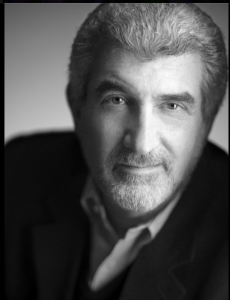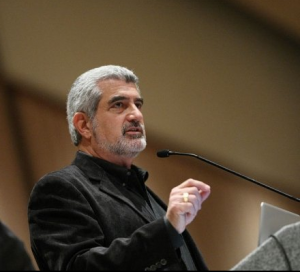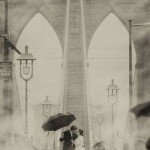Entrevista con un Icono en la Industria Fotográfica
By: Monica Pucciarelli
He has been and continues to be an inspiration and mentor to all photographers. An integral part of the photographic industry. It is an honor and pleasure to share with our readers this interview with an icon in the photography industry…Skip Cohen.
Ha sido y sigue siendo una fuente de inspiración y mentor de todos fotógrafos. Una parte integral de la industria fotográfica. Es un honor y un placer compartir con nuestros lectores esta entrevista con un icono en la industria de la fotografía … Skip Cohen.
First of all, thank you for taking the time to share your thoughts and expert advice with all of our readers.Tell us a little about yourself. How did you start out in the photography industry?-En primer lugar, gracias por tomar el tiempo, y compartir sus pensamientos y asesoramiento experto con todos nuestros lectores. Cuéntanos un poco acerca de usted. ¿Cómo empezo en la industria fotográfica?
Simplemente necesitaba un trabajo y me había movido a Boston para estar cerca de mi novia. Un vecino de mis padres tenía un amigo que trabajaba en Polaroid, y me consiguió un trabajo lavando botellas en un laboratorio a $ 2.89 la hora, estaba muy contento. Fue la mayor cantidad de dinero que jamás había hecho, y cuando trabajaba horas extras me pagaban por hora y media.
Estuve con Polaroid por 17 ½ años trabajando y abriendo paso hasta llegar a ser gerente de mercadeo para los distribuidores especializados en fotografía, y tiendas de cámaras. Un día recibí una llamada de un “head hunter” ( cazatalentos), me preguntó si quería ser presidente de una pequeña compañía de cámaras. La compañía fue Hasselblad EE.UU.. Eso fue en 1987, y es cuando considero la fecha oficial de mi inicio en la fotografía profesional.
I simply needed a job and had moved to Boston to be near my girlfriend. A neighbor of my parents had a friend who worked at Polaroid and got me a job washing bottles in a research lab for $2.89 an hour and I was so happy. It was the most money I’d ever made and when I worked overtime it was time and a half.
I was with Polaroid for 17 ½ years working my way up to a senior marketing manager for the photo specialty dealers, the camera stores. One day I got a cold call from a head hunter asking me if I wanted to be president of a small camera company. The company was Hasselblad USA. That was in 1987 and when I consider my official start date in professional photography.
-Who has been your greatest motivator for your career? –Quién ha sido su motivador más grande en su carrera?
Wow … hay un montón de ellos … Para empezar, tendría que ser mi equipo cuando tenia un par de años en Hasselblad, que incluyó Chuck Gutierrez, Al Zimmerman, Tony Corbell, Bob Nunn,Carl Claesson y el legendario Ernst Wildi. Mas adelante y después de unirme a Hasselblad sería Don Blair. Él y yo co-autoramos nuestro primer libro juntos de poses e iluminación de retratos clásicos. Dean Collins fue un motivador increíble, y alguien maravilloso con quien trabajar.
Wow…there are a bunch of them…To start it would have to be my team a few years into Hasselblad, which included the late Chuck Gutierrez, Al Zimmerman, Tony Corbell, Carl Claesson and the legendary Ernst Wildi. Early on after joining Hasselblad it would be Don Blair. He and I co-authored our first book together on posing and lighting classic portraiture. Dean Collins was an incredible motivator and wonderful to work with.
-Tell us about Skip Cohen University and Skip’s Photo Network.-Háblanos de Skip Cohen University, y de Skip’s Photo Network.
Skip’s Photo Network y GoingPro, fueron dos blogs donde estuve involucrado, y ahora se han combinado en un recurso enorme para fotógrafos profesionales. Skip Cohen University, puede ser uno de los sitios de crecimiento más rápido de educación fotográfica, llegando a 7000 visitantes únicos al día, en tan sólo los primeros cinco meses. SCU incluye un centro importante de vídeo, “webinars”, al menos una entrada en el blog al día, un nuevo podcast cada diez días y eventos que tienen lugar varias veces al año.
Skip’s Photo Network and GoingPro were two blogs I was involved in and have now been combined into one giant resource for professional photographers. Skip Cohen University may well be one of the fastest growing sites in photographic education, coming up on 7000 unique visitors a day in just its first five months. SCU includes a substantial video center, webinars, at least one blog post a day, a new podcast every ten days and live events taking place several times each year.
 -Where is the location for Skip’s Summer School 2013 and how can people register? ¿Dónde es la ubicación para la Escuela Skip Summer 2013 y cómo se puede registrar la gente?
-Where is the location for Skip’s Summer School 2013 and how can people register? ¿Dónde es la ubicación para la Escuela Skip Summer 2013 y cómo se puede registrar la gente?
Las Sesiones de Verano de SCU se llevaran a cabo en Chicago, Agosto 11 a 14. Es un programa extraordinario que incluye dos días de práctica fotográfica. Todos tienen la opción de dos instructores diferentes: Roberto Valenzuela, Bob Coates, Michele Celentano, Clay Blackmore, Justin y Mary Marantz, Suzette Allen, Ryan Schembri y Bob y Dawn Davis. Se trata de talleres prácticos, pero también hay algunos programas de plataforma increíble durante toda la escuela. Programas práctico se mantienen intencionalmente pequeños y no pasan de 20 personas por cada instructor.
SCU’s Summer Session is taking place in Chicago, August 11-14. It’s a remarkable program and includes two days of hands-on shooting with everyone’s choice of two different instructors: Roberto Valenzuela, Bob Coates, Michele Celentano, Clay Blackmore, Justin and Mary Marantz, Suzette Allen, Ryan Schembri and Bob and Dawn Davis. These are hands-on workshops, but there are also some incredible platform programs for the entire school. Hands-on program are intentionally kept small and will not go over 20 people per instructors.
-What are some projects you are currently engaged in at this time? -¿Cuáles son algunos de los proyectos al que se dedica actualmente ?
SCU está tomando casi todo mi tiempo, pero poco a poco voy trabajando en otro libro. He co-autorado seis libros con otros fotógrafos, y estoy emocionado de escribir uno propio, sobre marketing y auto-promoción.
SCU is pretty much taking up all my time, but I am slowly working on another book. I’ve co-authored six books with other photographers and I’m excited to do my own about marketing and self-promotion.
–What is your single best tip to offer an emerging photographer. -Cuál es el mejor consejo que puede ofrecer a un fotógrafo que comienza en la fotografia?
Aprender el oficio … todo el mundo puede conseguir su primer cliente, pero el reto es conseguir que el primer cliente regrese, y te recomienda con sus amigos para que puedas obtener el 2do, 3er, y 4to. La única manera de hacer esto es siendo el mejor fotógrafo que puedas ser – no comprometer la calidad y siempre exceder las expectativas del cliente.
LEARN THE CRAFT…anybody can get their first customer, but the challenge is getting that first subject to come back and tell his/her friends so you get your 2nd, 3rd and 4thcustomers. The only way to do that is to be the very best photographer you can be – don’t compromise on quality and always exceed client expectations.
-What is the number one complaint you hear from most photographers in the industry today?–Cuál es la queja número uno que escuchas de la mayoría de los fotógrafos en la industria de hoy en día?
Demasiados fotógrafos culpan la economía y la tecnología en la desaceleración de su negocio. La economía, porque piensan que la gente está gastando menos, y la tecnología porque piensan que cualquier consumidor que tiene el mismo equipo, o un equipo mejor que ellos, está robando su negocio. La verdad es que el negocio está ahí, pero hay que adaptarse a los tiempos. También soy un gran fan de la diversidad . Si has hecho un gran trabajo en la boda de la pareja, ¿por qué no estar ahí cuando nace el primer bebé … después, también estar allí cuando la familia y los niños crecen … estar allí para las quinceañeras y otros eventos importantes de la familia.
Too many photographers blame the economy and technology on the downturn in their business. The economy because they think people are spending less and technology because they think any consumer who has the same gear or better gear than they do is stealing their business. The truth is, business is out there, but you have to adapt with the times. I’m a big fan of diversity as well. If you did a great job on the couple’s wedding then why not be there when the first baby is born…then be there as the family and the kids grow…be there for the quinceaneras and the other important family events.
–In your opinion, what does it mean to be a professional Photographer today?-En tu opinión, ¿qué significa ser un fotógrafo profesional hoy en día?
Un fotógrafo profesional es un artista que escucha a sus clientes, crea imágenes excepcionales, y deja a sus clientes sin palabras sobre la emoción de los recuerdos que capturo. Son orientado al servicio al cliente y están al tanto de las tendencias, dandose cuenta que nunca dejaran de aprender cómo hacer que sus imágenes sean lo mejor que puedan ser.
A professional photographer is an artist who listens to his/her clients, creates outstanding images and leaves their clients speechless over the excitement of the memories they capture. They’re customer service oriented and they stay on top of the trends, realizing they never stop learning how to make their images the best they can be.
–What do you believe is a key element in creating a good composition? -¿Que crees es un elemento clave en la creación de una buena composición?
Soy un gran fan de las reglas básicas, pero también me encantan los fotógrafos que una vez que conocen las reglas, las rompen. El poder de una gran imagen está en su factor “wow”. Gran impacto podría significar romper las reglas, pero la imagen tiene que dejarte un poco sin palabras para poder ser grande.
I’m a big fan of the basic rules, but I also love photographers who, once they know the rules, break them. The power of a great image is in its “wow” factor. Great impact might mean breaking the rules, but image has to leave you a little speechless to be great.
-Photography is a very hard job, and often consists more of business administration than of actually shooting photos. What is the single most important piece of advice you can give on sales and marketing? -La fotografía es un trabajo muy duro, y más a menudo consiste mas en administración de negocio que de las fotos que uno toma. ¿Cuál es el consejo más importante que puede dar sobre ventas y marketing?
Si no vas a prestar atención a la parte de marketing de tu negocio, entonces contrata a alguien que lo haga. Si no vas a contratar a alguien, deja el negocio. Qué sirve crear las imágenes más grandes de tu vida si nadie sabe quién eres? Podría escribir páginas sobre este tema, y de hecho lo he hecho!
If you’re not going to pay attention to the marketing side of your business then hire somebody who will. If you won’t hire somebody then get out of business. What good is creating the greatest images of your life if nobody knows who you are? I could write pages about this topic and in fact I have!
-For many wedding and event photographers, the way they used to do business is not working anymore. For those who are struggling to gain new clients, what advice can give them? -Para muchos fotógrafos de bodas y eventos, la manera como hacían negocios ya no está funcionando. Para aquellos que están luchando para ganar nuevos clientes, ¿qué consejo puede darles?
Acabo de hacer un post sobre esto en el blog la semana pasada sobre la búsqueda de nuevos clientes … es demasiado largo para contestar aquí, pero aquí está el enlace.
I just did a post on this on the blog last week about finding new clients…it’s too long an answer here but here’s the link.
http://www.skipcohenuniversity.com/1/post/2013/07/one-step-at-a-time-step-9-finding-clients.html
-In all your years of experience in the photo industry, I am sure you have studied and learned there are certain traits successful photographers have in common. Can you name a few essential building blocks for success.-En todos los años de experiencia en la industria fotográfica, estamos seguros de que ha estudiado, y aprendido que hay ciertos rasgos que fotógrafos exitosos tienen en común. ¿Puede nombrar algunos elementos esenciales para el éxito?
En primer lugar, es la pasión. Todo gran fotógrafo que consideramos exitoso es un apasionado de su trabajo, y sus clientes. Segundo, todos se dan cuenta que no pueden dejar de aprender. Siempre están tomando más clases, y prestando atención a los cambios en la tecnología. En tercer lugar, son leales – a sus clientes, sus proveedores, y otros fotógrafos. Último es la integridad – realmente se preocupan por cada cliente y trabajan muy duro para satisfacer y superar sus expectativas.
First, is passion. Every great photographer who we consider successful is passionate about their work and their clients. Second, they all realize they can never stop learning. They’re always taking more classes and paying attention to changes in technology. Third, they’re loyal – to their customers, their suppliers and other photographers. Last is integrity – they really care about each client and work extra hard to meet and exceed their expectations.
–Do you think that film will be fading into oblivion eventually, or that it may have a booming renaissance?-¿Crees que film se desvanece en el olvido eventualmente, o que puede tener un renacimiento ?
Sí, pero nunca olvido completo. Vi una exposición de Chris Ranier, fue hace unos años atraz. Todo fue sacado en film con Hasselblad, y luego escaneada y digitalizada. Tenía el mejor de todos los mundos. Film no va a volver a lo que era, pero todavía hay algunos grandes fotógrafos de film haciendo un trabajo notable, como José Villa .
Yes, but never complete oblivion. I saw an exhibit of Chris Ranier’s a few years ago. It was all shot on film with Hasselblad and then scanned and digitized. He had the best of all worlds. Film is not going to come back to what it was, but there are still some great film shooters like Jose Villa, doing some remarkable work.
-What things would you most like to see develop in the photographic community over the next few years?-Qué cosas le gustaría ver desarrollado en la comunidad fotográfica, durante los próximos años?
Mejor comunicación. Aunque disponemos de herramientas increíbles con Facebook, Twitter y correo electrónico básico, todavía tenemos demasiados fotógrafos que no comparten ideas o utilizan Internet para obtener más conocimientos, o para hacer sus propias habilidades más fuertes.
Better communication. While we have incredible tools with Facebook, Twitter and just basic email we still have too many photographers who don’t share idea or utilize the Internet to gain more knowledge to make their own skills stronger.
-If you could change something in the photographic industry right now, realistically or unrealistically, what would it be?-Si pudiera cambiar algo en la industria fotográfica ahora mismo, de manera realista y no realista, ¿qué sería?
Bueno, esto va a sonar estúpido, pero me encantaría tener más fotógrafos felices. En serio, hay demasiados fotógrafos que han perdido la noción de lo increíble que es ser un fotógrafo. Personas te pagan para capturar memorias, la mayoría… buenos recuerdos. ¿Qué podría ser más maravilloso? Deja de quejarte y trabaja en tus habilidades y marketing – sabes cómo enfocar tu cámara, ahora es tiempo de centrarte en tu carrera.
Okay, this is going to sound stupid, but I’d love to get more photographers happier. Seriously, there are too many photographers who have lost site of how incredible it is to be a photographer. People pay you to capture memories, most of them good memories. What could be more wonderful? Stop whining and work on your skill set and your marketing – you know how to focus your camera, now it’s time to focus on your career.
–Cameras are in the hands of the masses, and it seems like the art is withering in the face of over-consumption. So many aspects of photography have changed, and so rapidly, that there is almost no forewarning. Where do you see the wedding industry today, and where is it headed? –Las cámaras están en manos de las masas, y parece que el arte se está marchitando en la cara de exceso de consumo. Tantos aspectos en la fotografía han cambiado, y con tanta rapidez que casi no hay ningún aviso previo. ¿Dónde ve la industria de bodas hoy y hacia dónde se dirige?
En la industria de bodas realmente no veo un montón de cambios grandes, salvo en algunas de las tendencias que impactan a las novias. Por ejemplo, no se puede comprar imágenes stock de tu boda, por lo que el concepto de capturar recuerdos especiales, se encuentra relativamente insulado. Sin embargo, es el trabajo del fotógrafo conseguir que esas clientas o novias entiendan la importancia, y el valor de un álbum de boda. No es un libro de fotos, pero la primera reliquia de la nueva familia.
In the wedding industry I really don’t see a lot of big changes except in some of the trends that impact brides. You can’t buy stock images of your wedding for example, so the concept of capturing special memories is relatively insulated. But, it’s the photographer’s job to get bridal clients to understand the importance and value of a wedding album. It’s not a book of pictures, but the first family heirloom of a brand new family.
-What is your favorite quotation and why?-Cuál es su expresión favorita y por qué?
“Si esperas hasta que todas las luces se pongan verdes, nunca empezaras el viaje” de Zig Ziglar – demasiados fotógrafos, y propietarios de negocios parecen pensar que todo tiene que estar perfecto antes de moverse hacia una nueva dirección. La verdad es que todo nunca va a estar en lo cierto – así que hay que calcular los riesgos y jugarsela. ¿Esto le da a otra frase favorita, “Mares lisos no hacen marineros expertos.” Es autor desconocido, pero la única manera que vas a aprender a sobrevivir, y hacer crecer tu negocio es haciendo frente a todos los retos – no vas a aprender nada si todo siempre es correcto.
“If you wait until all the lights to turn green, you’ll never get started on your journey” by Zig Ziglar – too many photographers and business owners seem to think everything has to be just right before they move in a new direction. The truth is, everything will never be right – so you have to calculate the risks and take some chances. Which hits another favorite quote, “Smooth seas don’t make skilled sailors.” It’s author is unknown, but the only way you’re going to learn to survive and grow your business is to deal with all the challenges – you won’t learn anything if everything is always right.
-If you could choose one person alive or dead to enjoy a day with, who would that be and why?-Si pudieras elegir a una persona vivo o muerto con quien disfrutar un día , quién sería y por qué?
Wow … pregunta difícil … mi primer pensamiento es Robin Williams, Walter Cronkite, Ansel Adams, y Al Pacino … lo siento, no hay una lista única de primera persona … Robin Williams porque es un genio cómico, y puede tomar las cosas más simples y hacerlas graciosas … Walter Cronkite por lo que experimentó en su vida … Ansel Adams por su habilidad de ser un perfeccionista. Aunque nunca lo conocí, tengo llaves de su coche en mi escritorio, pero eso es otra historia. Al Pacino, porque me encanta su capacidad de actuar … también estoy fascinado con la contribución de Oprah al mundo, Ann Curry, Diane Sawyer y Jennifer Lopez para cualquiera que este por acusarme de ser sexista …jajaja.
Wow…tough question…Right off the top of my head it’s Robin Williams, Walter Cronkite, Ansel Adams and Al Pacino…sorry, there is no first single person list…Robin Williams because he’s a comic genius and can take the simplest of things and make them funny…Walter Cronkite because of what he experienced in his life time…Ansel Adams because of his ability to be a perfectionist. Although never meeting him I do have his car keys in my desk, but that’s another story and Al Pacino, because I love his acting ability…I’m also fascinated with Oprah’s contribution to the world, Ann Curry, Diane Sawyer and Jennifer Lopez for anybody about to accuse me of being sexist…LOL
-Finally, thank you for participating in this interview and giving our readers a short glimpse into your mind. Is there anything you would like to add?-Por último, muchas gracias por participar en esta entrevista y dar a nuestros lectores una breve mirada dentro de su mente. ¿Hay algo que le gustaría añadir?
Se orgulloso de ser fotógrafo. Con la excepción de la medicina moderna, no hay ninguna carrera que le haya dado más al mundo. Es una responsabilidad increíble, pero qué maravilloso poder proveer al mundo con memorias tangibles! Y no me importa lo que hagas en esta industria, tanto si eres un fotografo detrás de las escenas, en la post-producción, o si trabajas para un proveedor o fabricante – esta es una industria increíble!
Be proud of being a photographer. With the exception of modern medicine there is no career field that’s given the world more. It’s an incredible responsibility, but how wonderful to be able to provide the world with tangible memories! And I don’t care what you do in this industry, whether you’re a shooter, behind the scenes in post production or working for a supplier or manufacturers – this is an amazing industry!
Follow Skip’s Blog at: http://www.SkipCohenUniversity.com
Facebook page: https://www.facebook.com/skipcohen

Skip Cohen es presidente de marketing Essentials International, una firma consultoría especializada en proyectos de fotografía. Fue presidente de Rangefinder Publishing Inc., donde supervisó revistas Rangefinder y AfterCapture, Wedding y Portrait Photographers International Association (WPPI), y WPPI Expo. Es fundador de la Escuela de Verano Skip’s Summer School, Akron Photo Series, y co-fundador de GhostRighters.com y GoingPro2011.com. Skip es coautor de seis libros sobre fotografía y se puede encontrar en SkipsPhotoNetwork.com.
Skip Cohen is president of Marketing Essentials International, a consulting firm specializing in photography projects. He is past president of Rangefinder Publishing Inc., where he oversaw Rangefinder and AfterCapture magazines, the Wedding and Portrait Photographers International (WPPI) Association, and the WPPI trade show. He is founder of Skip’s Summer School, the Akron Photo Series, and co-founder of GhostRighters.com and GoingPro2011.com. Skip has co-authored six books on photography and can be found at SkipsPhotoNetwork.com.






Leave a Reply